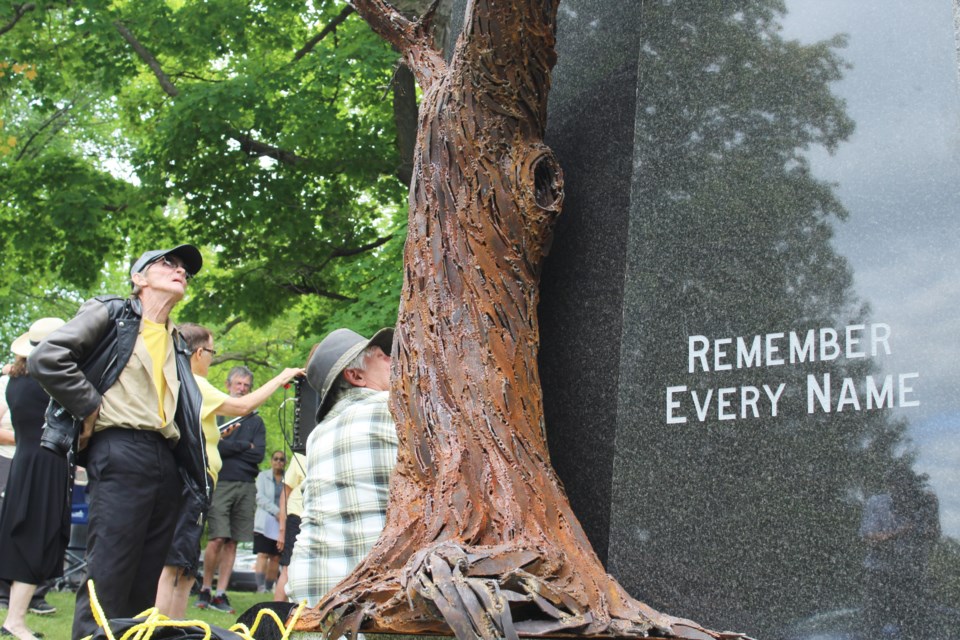A documentary featuring survivors and victims of the Huronia Regional Centre (HRC) is set to premiere May 3 at Toronto’s Hot Docs Canadian International Documentary Film Festival.
Unloved: Huronia’s Forgotten Children follows director Barri Cohen’s investigation into the deaths of her two half-brothers, who were institutionalized at the HRC in the 1950s, and it extends outward into the lives of those who survived grim conditions at an institution meant to help intellectually disabled youth.
At its peak, the institution housed 3,000 people in a space meant to accommodate 1,400, and numerous residents died of neglect and endured abuse prior to HRC shutting its doors permanently in 2009.
Former HRC employee and survivor advocate Debbie Vernon hopes the documentary opens people’s eyes to the abuse endured by many at the institution.
Vernon, who is featured in the documentary, was also an advocate for the monument at HRC Cemetery, which memorializes those who survived and those who died under the institution’s care.
It is estimated as many as 1,500 to 2,000 people may be buried at the cemetery, many in unmarked graves.
“I hope it’s shared widely because a lot of people — society as a whole ... did not know that these places existed,” Vernon told OrilliaMatters. “Society is just starting to learn about residential schools, but not so much about these large institutions that were built for people with disabilities, and I'm not sure why that is. Now that we have a documentary, maybe more people will start to hear their stories and to start believing survivors.”
Vernon worked at the HRC through a student placement in the 1970s, and later returned to work there for a few years through the 1990s, describing the living conditions she witnessed as poor.
“There were staff that did try to improve their lives, but they still slept in big wards and rooms, without any personal possessions,” she said. “They slept on metal cots and were provided with two cotton sheets to sleep on, even in the wintertime.”
“Some had pillows; some did not,” she continued. “Some went to bed at night with pyjamas on, and some did not.”
Though Vernon signed a confidentiality agreement in her time as an HRC employee, she has been involved with the institution’s survivors since helping several with a class-action lawsuit that ended in a $35-million settlement in 2013.
Vernon hopes the documentary will help draw awareness to the ills of institutionalizing people for any number of reasons.
“I’m hoping that people will understand that it was part of our recent past and that we’ve got to stop institutionalizing people,” she said. “We’re doing that now with long-term care, where people are being segregated and congregated and controlled.”
She is also worried about a number of plans that have come up for the former HRC buildings that still stand today.
“The survivors wanted the Huronia Regional Centre to be torn down, and now the government’s refurbishing all the buildings and it’s turning into a police academy, and it’s hard to think that the police would be in these buildings, where people were murdered and abused,” she said.
“(The government) has talked about putting long-term care beds on that property … but (survivors) don’t want to see another institution put on that property, especially when they could be at risk of being returned there.”
— With files from Nathan Taylor



